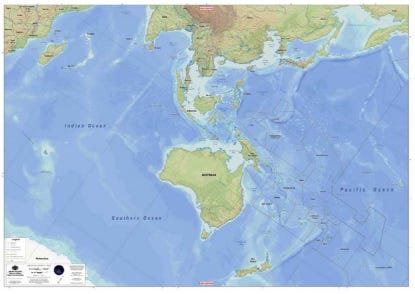Is a nation better off being a U.S. friend or foe? It’s a serious question; a good chunk of the world is choosing the latter. From Russell Clark at russell-clark.com:
Australia is a very close ally of the US – but is the US asking too much?
Australia as a colony, and then after independence, operated as part of the British armed forces, sending substantial number of troops to World War I and II to fight in Europe. However during World War II, the collapse of Singapore saw Japanese forces attack the mainland Australia. Only the US was able to offer military support, and from this moment on, Australia military was reconfigured to ally with the US rather than British Armed Forces. The military bond between the US and Australia is so close, that Australia reintroduced conscription during the Vietnam war. Even today songs like “Khe Sanh” and “I was only 19” that describe the trials and tribulations of Australian soldiers in Vietnam are well known.
After the Vietnam war, for years Australian defence policy was centred on a “large country to the north” aka Indonesia. Military fears were driven by the invasion and annexation of West Papua by Indonesia in 1969 that saw a number of Australian journalists perish. Papua New Guinea was ruled by Australia until 1975, meaning that Australia was already protecting a land border against Indonesia. As an Australian military map shows, only Indonesia is close enough to possibly invade the populated East Coast. A military policy focused on stopping a potential Indonesian threat was both logical and sensible.

The isolation of Australia with the collapse of the Soviet Union, and the rise of democracy in Indonesia has led Australia to have defence policy of “strategic warning time”, which in essence meant that Australia had 10 years to respond to any real military threat. The most recent review argues that this period is over, and Australia needs to commit to a much more rigorous defence strategy. In particular it is looking to work much more closely with other nations in the Indo-Pacific region to counteract the influence of China. The landmark agreement of AUKUS where Australia will acquire nuclear submarines from the UK. The problem is that Australia now seems to be investing heavily to protect itself from its largest trade partner (memorable parodied here).

May I add that a threat from the North (Indonesia) was only a manufactured (fake) one: 1/_ Indonesians had known of Australia for thousands of years and did not bother to move to Australia. (Australian Dingo dogs are of Indonesian origin). 2/_ Indonesia had been too busy to deal with its own internal and external threat from its North. 3/_ Indonesian annexation of East Timor had an approval/co-operation from the Australian government to prevent the arrival of multiple mini states in the Pacific. Indonesia had no time considered Australia an invading threat. 4/_ Australia had played a fool in banning the sale of Uranium to India while giving aids and selling Uranium to China. 5/_ Australia is now begging India and Japan to help it containing China.
So the global point of view should be considered but the Australian point of view was only the view of a “mentally retarded brother in the English speaking nations” (Lee Kuan Yew,).
LikeLike
All the rump vassals will be lost when the dollar collapses.
The internationalist Nimrod worshipper globalists won’t lose it though.
No global soviet without zero value dollar and WWIII.
LikeLike